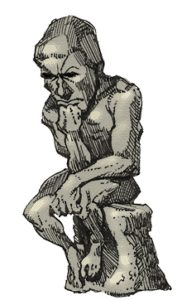A couple of weeks ago I was talking to a senior marketer at a major global food company and he described the current environment as “a full assault on food companies of all kinds.” I saw an interesting example of this assault at the TED Conference, where Jamie Oliver (the Naked Chef) was awarded this year’s TED Prize and delivered a very engaging rant about the state of the food business. Here is a link if you’re interested.
Anecdotes like these suggest to me that the story energy in the food business is undergoing a tectonic shift. Over the past sixty years, one of the overarching conflicts in the category has been ease versus virtue. Virtue has generally meant health or nourishment in some form, while ease has meant convenience, along with value, taste, fun and indulgence. Unsurprisingly, ease has been the dominant story current.
One of the rules of story is that when one side of a conflict is suppressed for a long time the suppressed energy will eventually emerge with extra force. It feels like we are approaching a tipping point at which the virtue side of the food story is getting ready to assert itself with a vengeance. If so, then food companies that can embrace this conflict in an authentic way will prosper, and those that can’t will get swamped by the wave.
Embracing the conflict between ease and virtue means presenting an original, engaging and credible take on the collision of the two energies. One brand that seems to have been doing this pretty well is Newman’s Own. The virtue energy in the story is very clear in the idea of “all profits for charity.” It is strongly underscored by the perception that Paul Newman himself could have lived a life of self-indulgence but chose the virtues of faithfulness and family, partnering with his daughter in this business for the fun of making unusually good stuff and sharing it with the world.
The ease side of the Newman’s Own story is visible in the kinds of products the brand initially chose to create–comfort foods and snacks, for example–and also in the very fact that the brand seems to dabble in a wide and eclectic range of foods, making it easy for me to browse through sections of the store that might otherwise present a confusing range of choices.
Coke, on the other hand, is a brand that got a tremendous boost from the ease-versus-virtue story in its formative years, and has suffered as the definition of virtue has shifted to pull the floor out from under its story. The idea of putting refreshment “within an arm’s reach of desire” is very compelling so long as the energy boost and refreshment offered by a bottle of Coke feels like a virtue.
McDonald’s story has described a similar arc, beginning when Ray Kroc took the easy, tasty indulgence of the drive-in and added the virtues of safety, cleanliness and responsibility. That story was captured with deep cultural resonance in the idea that “You deserve a break today.” Now, McDonald’s is scrambling to evolve its menu so that it can continue to offer an interesting collision of indulgence and responsibility without alienating its regular customers.
Pretending that the two energies are not really in conflict (as Kentucky Fried Chicken tried to do at the height of the Atkins craze by suggesting that KFC had suddenly become “health food”) will undermine any hope of authenticity and runs the risk of leaving the audience feeling betrayed. The only way forward is to figure out how to embrace the conflict with grace and integrity. That may be hard to do, but it does make for an engaging and emotionally satisfying story.
If you have other examples of companies in the food business who are doing a good job of embracing the conflict, I would love to hear them.
